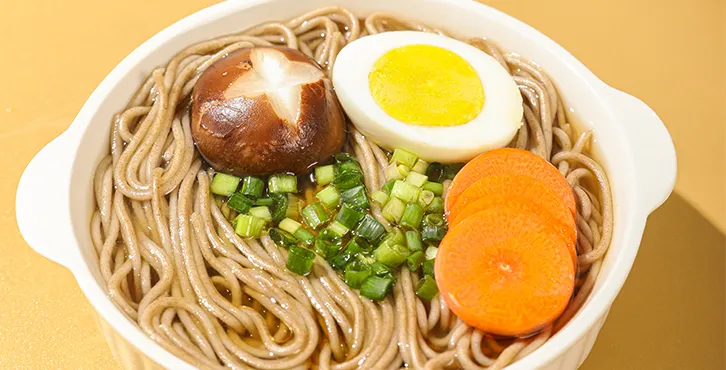noodles good for diabetes
Noodles and Their Role in Managing Diabetes
When it comes to managing diabetes, dietary choices play a crucial role. Among various food options, noodles have garnered a mixed reputation. While many may consider noodles a comfort food, the question arises are noodles good for diabetes? The answer isn't straightforward, as it largely depends on the type of noodles, preparation methods, and overall dietary balance.
Understanding Noodles
Noodles are a staple in many cultures around the world and come in various forms, including wheat, rice, egg, and even whole grain versions. Traditional wheat noodles, such as those found in Italian pasta or Asian-style noodles, are often made from refined flour, which can lead to spikes in blood sugar levels. This is a critical consideration for individuals managing diabetes, as maintaining stable blood glucose levels is paramount for overall health.
Choosing the Right Noodles
For diabetics, not all noodles are created equal. Here are some options that can be better for managing blood sugar
1. Whole Grain Noodles Whole grain noodles, such as whole wheat spaghetti or buckwheat noodles, are richer in fiber and nutrients compared to their refined counterparts. The higher fiber content helps to slow down digestion, leading to a more gradual release of glucose into the bloodstream.
2. Legume-Based Noodles Noodles made from legumes, such as lentil, chickpea, or black bean noodles, have gained popularity in recent years. These options are generally lower in carbohydrates and higher in protein and fiber, making them more suitable for blood sugar control.
noodles good for diabetes

3. Vegetable Noodles Zoodles (zucchini noodles) or spiralized vegetables can be excellent alternatives to traditional noodles. They are low in calories and carbohydrates, and they offer a wealth of vitamins and minerals. Incorporating vegetable noodles into meals can enhance fiber intake while reducing overall carbohydrate consumption.
Portion Control and Preparation
Even with healthier noodle options, portion control is key. It's essential to be mindful of serving sizes, as consuming large quantities of any carbohydrate-rich food can still lead to blood sugar spikes. A balanced plate should ideally consist of a portion of noodles paired with lean proteins (such as chicken, tofu, or legumes), healthy fats (like olive oil or nuts), and plenty of non-starchy vegetables.
Moreover, the preparation method matters. Frying noodles in excessive oil or adding sugary sauces can convert an otherwise healthy meal into a blood sugar disaster. Opting for steaming, boiling, or sautéing with minimal oil helps maintain the nutritional value of the dish while keeping it diabetes-friendly.
Combining Noodles with Other Food Groups
Combining noodles with other food groups can further stabilize blood sugar levels. Adding a source of protein, healthy fats, and fiber-rich vegetables can balance the meal and slow the absorption of carbohydrates. For example, a dish featuring whole grain noodles, grilled chicken, and a variety of colorful vegetables can provide a nourishing and satisfying meal that supports better blood sugar management.
Conclusion
In conclusion, noodles can be incorporated into a diabetes-friendly diet, provided that the right types and preparation methods are chosen. Whole grain, legume-based, and vegetable noodles can offer nutritious alternatives that help maintain stable blood sugar levels. Practicing portion control and combining noodles with proteins and vegetables will create balanced meals that satisfy hunger and support overall health. By making informed choices, individuals with diabetes can enjoy a variety of dishes, including noodles, without compromising their health. As always, it is advisable to consult with a healthcare provider or nutritionist for personalized dietary advice tailored to individual needs.
-
Is Whole Wheat Pasta Healthy?NewsMay.30,2025
-
Are Soba Noodles Good for Weight Loss?NewsMay.30,2025
-
Are Buckwheat Soba Noodles Healthy?NewsMay.30,2025
-
Are Buckwheat Soba Noodles Gluten Free?NewsMay.30,2025
-
Are Buckwheat Noodles Good for You?NewsMay.30,2025
-
A Healthy Way to Savor Soba and Spicy FlavorsNewsMay.30,2025
-
What Are Lanzhou Noodles?NewsMay.30,2025
Browse qua the following product new the we

















































































































